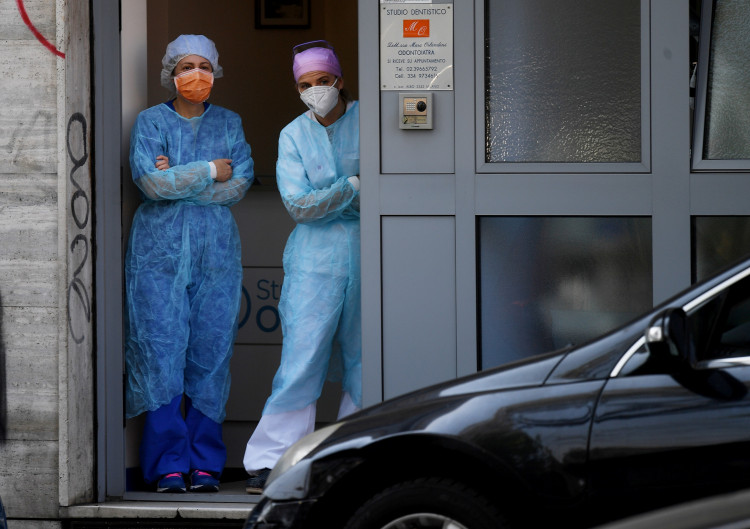The 19 member states comprising the eurozone saw their combined gross national products (GDP) contract by a historically low 12.1% during the second quarter of this year compared to the first. The massive plunge saw all the three leading eurozone economies -- Germany. France and Italy -- hurled into an economic recession.
The unprecedented loss in growth due to the severe economic downturn from the COVID-19 pandemic is the lowest since records began being kept in 1995. The eurozone reported a fall of 3.6% in GDP during Q1 versus Q4 2019.
This data, however, is preliminary. Eurostat, or the European Statistical Office, warned the final numbers will likely be worse since the data it used in the initial estimates were "incomplete and subject to further revisions."
European Union (EU) Economy Commissioner Paolo Gentiloni said "all European countries" suffered unprecedented consequences due to the pandemic. In addition to the reporting on the growth contraction in the eurozone as a whole, Eurostat also revealed Q1 GDP numbers in the leading member states.
Germany, which generates a quarter of the EU's total GDP, reported a massive 10.1% reduction in its GDP compared to Q1, its largest drop in GDP since it began keeping quarterly records in 1970. On a year-on-year basis, Germany's economy shrank 11.7% in Q2.
France, the E.U.'s second largest economy, posted a record 13.8% drop in GDP. The French economy, which is in recession, has now shrunk for three straight quarters. Analysts estimate this recession will likely persist even as spending revives.
Italy saw an unprecedented decrease in its GDP amounting to 12.4% compared to Q1 when it shed 5.4% in growth. The contraction was the worst since records began in the 1960s. The plunge hurled Italy, the eurozone's third largest economy, into recession. On a year-on-year basis, Italy's economy shrank 17.3%.
Spain, the hardest hit major E.U. economy, fell into recession in Q2 when its GDP plummeted by 18.5% quarter-on-quarter. Its Q1 GDP lost 5.2%. Spanish Prime Minister Pedro Sanchez will meet leaders of the country's regions to discuss rebuilding the economy.
Portugal's GDP slumped 14.1% quarter-on-quarter, the largest ever. It lost 3.8% in growth during Q1. Portugal blamed weak domestic demand, both in private consumption and investment, as the main reasons for the historic drop in GDP. It expects a 6.9% contraction in GDP for the full-year 2020.
The dramatic drop in the Q2 eurozone GDP "doesn't tell us that much about the general state of the economy" due to the unusual circumstances, said Bert Colijin, senior economist at ING bank in Frankfurt.
"It is a shocking drop, but completely understandable as the economy was shut down for a considerable period during the quarter," he said. "The hard part of this recovery is set to start about now."






